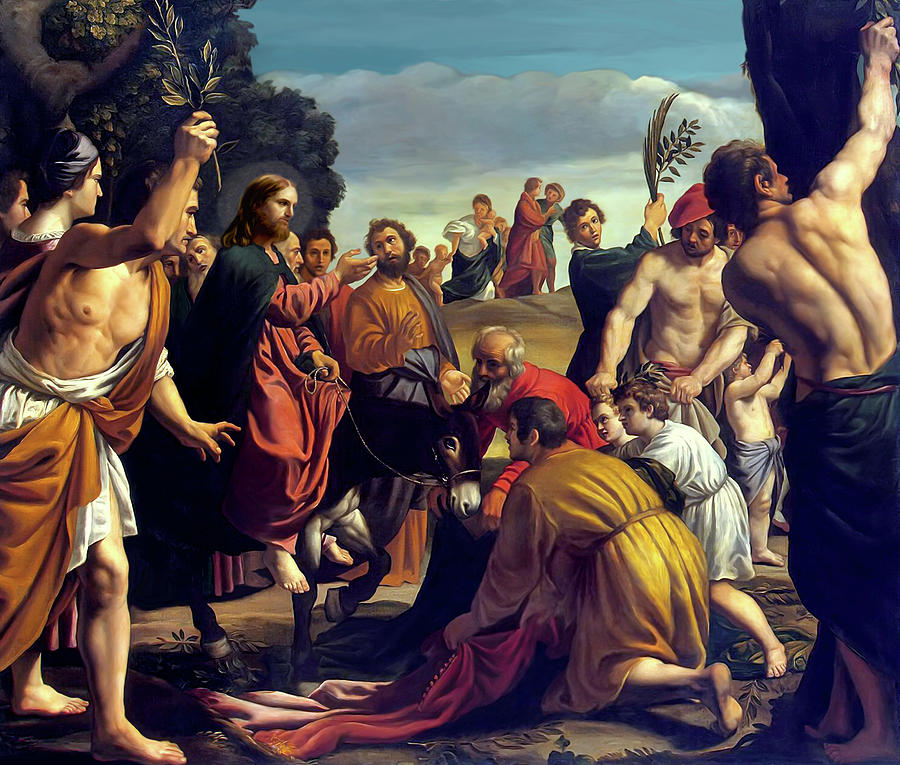Which will emerge – the best or worst in us?
Viktor Frankl, a Jewish psychologist and author of “Man’s Search for Meaning” wrote: We who lived in concentration camps can remember the men who walked through the huts, comforting others, giving away their last piece of bread.
Apr 08, 2022

Rt Rev Bernard Paul is the Bishop of the Malacca Johore Diocese
Palm Sunday of the Lord’s Passion (C)
Readings: Isaiah 50:4-7;
Philippians 2:6-11;
Gospel: Luke 22:14-23, 56
Viktor Frankl, a Jewish psychologist and author of “Man’s Search for Meaning” wrote: We who lived in concentration camps can remember the men who walked through the huts, comforting others, giving away their last piece of bread.
They may have been few in number but they offer sufficient proof that everything can be taken from a man but one thing: the last of the human freedoms – to choose one’s attitude in any given set of circumstances, to choose one’s own way.”
For Jesus, He chose to love. He chose His own way. He chose to be faithful to His destiny. Many live in their past, rest on their laurels. But Scripture speaks of finishing well, finishing strong. The finishing mattered to God. How we recall what Jesus said: the first will be last, and the last will be first.
The first part of Palm Sunday begins outside Jerusalem: The Coming of the Hour.
Is it a time to meet our end? Or is it the time to face our destiny, the hour of fulfilment? Some say that’s the hour when we accomplish what we have been created for. That’s the hour that exacts the greatest sacrifice. That hour had come for Jesus. He knew fully well. Outside of Jerusalem is more than the coming of the hour, it is the “embracing of one’s destiny”.
For Jesus, the hour began where He was planted. That was where He did all the groundwork. He was faithful to the ‘here and now.’ The preparation began at Nazareth, his hometown. He was guided by the Scriptures and the prophesies. They affirmed and confirmed the steps and directions He took in His life journey. Jesus lived to do His Father’s will, to take up the cross. The cross saves. The “taking up of one’s cross of life” saves.
The attitudes that helped Jesus to embrace the moment, the destiny that was awaiting Him were:
a) Taking ownership of His destiny, the Father’s will.
b) Being faithful and resolute to His call and mission.
c) Having a realistic view of His situation and people; being ready for both, praises and curses.
Embracing our destiny entails that. Jesus showed us to take the path with the heart; a path that is ours and ours alone. No one else can replace us or take our place.
He chose to exercise the last freedom — the freedom to choose his attitude and choose his own way.
The second part of Palm Sunday begins Inside Jerusalem: The hour has come.
It is beyond embracing the destiny. The price of embracing one’s destiny is “facing the trial”. Does this mean that one must undergo the trial of fire to be the destined one? What if we were there, attending His trial but not on trial? (Isa 50:4-7; Ph 2:6-11; Lk 22:14-23:56)
But Jesus was not on trial. It was the people who were on trial. The trial brought out the best and the worst in people.
Most gave up the ‘freedom to choose their attitude’ that day. Different people responded differently. The Passion Reading features eight responses or ways, individuals and groups revealed themselves:
a) The Sanhedrins, the Sadducees, the scribes, the priests: ‘Remove this irritant.’
b) Pilate, the Roman Governor: ‘Let the crowd...the people decide.’
c) The crowd: ‘Follow the leader. Follow the loudest.’
d) The soldiers: ‘Let’s hurt Him good. That’s our job.’
e) Simon of Cyrene: ‘What can I do? They enlisted me.’
f) Those who jeered: ‘Prove yourself.’
g) The watchers, the spectators: ‘Let’s see what happens.’
h) The Roman centurion: ‘Truly, this man was the Son of God.’
They were on trial. Many a time, we are tried too. Our responses and reactions, our thoughts and comments, reveal us. We claim to know, to have seen, and to be His followers. Proudly we profess to be ‘born Catholics’. When we see situations of cruelty, persecutions, people on trial, abused and degraded, on death sentence, do we stand apart as judges, accusers, enforcers, the compliant, the ‘what can I do’ bystanders or ‘helpless but ready to make a stand and side with truth, justice and mercy?’ If you were watching the crucifixion, where in the crowd would you be?
It is our trial. Daily events try us. We can let the best in us to shine forth or the worst in us to add to the darkness around us. The hymn ‘Go, Light a Candle’ is ringing within me. Can we ‘light a candle’ ...be the one lighted candle in the midst of the growing darkness?
This is how the Psalmist responded to the path with the heart: “My life, my every moment, my destiny — it’s all in your hands. So, I know you can deliver me from those who persecute me relentlessly”. (Psalms 31:15)







Total Comments:0